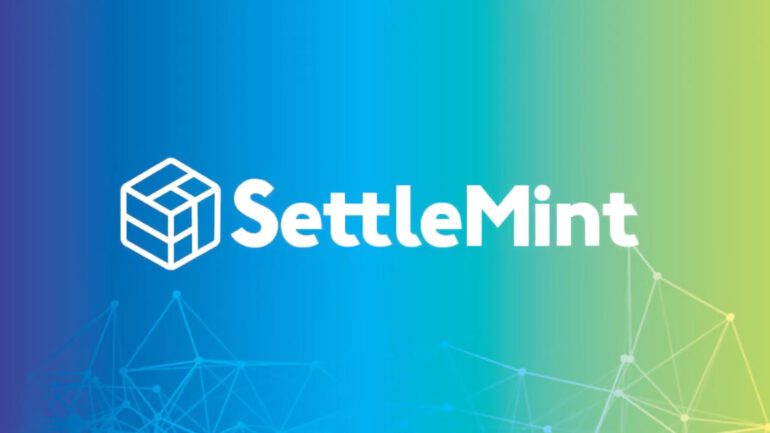TL;DR:
- SettleMint introduces an AI assistant to its low-code blockchain programming platform.
- The AI assistant aids developers in creating smart contracts, data integration, and QA testing.
- Lack of technical skills in blockchain is a challenge for many enterprises.
- The AI assists in understanding and debugging code, enhancing efficiency.
- Technical audits remain crucial, but AI streamlines the process.
- SettleMint’s AI is primarily trained on OpenAI’s GPT-4 and stays updated with blockchain developments.
- Despite the “crypto winter,” SettleMint experiences steady growth and increasing customer interest.
- Smart contracts find diverse applications, such as NFT use cases in ticketing and proof of ownership guarantees.
- SettleMint’s expansion into Asian and Middle Eastern markets is supported by strategic partnerships.
Main AI News:
In today’s ever-evolving technological landscape, artificial intelligence continues to redefine the way we approach software development. SettleMint, a pioneering low-code blockchain programming tool for enterprises, has taken a significant stride by incorporating an AI assistant into its platform. This innovation comes on the heels of their €16 million Series A funding round, underscoring the company’s commitment to empowering developers and businesses in the world of blockchain.
The AI assistant, a culmination of months of meticulous development, holds the promise of streamlining smart contract creation, data integration, and quality assurance (QA) testing. Its role is not to supplant human developers, but rather to augment their capabilities. By assisting in drafting smart contracts and explaining the intricacies of code, the AI empowers developers to make more informed decisions, minimizing the risk of errors that could have far-reaching consequences.
In the realm of blockchain development, where the demand for skilled Solidity programmers far outpaces the supply, SettleMint’s AI assistant emerges as a game-changer. Solidity, the programming language used to craft self-executing digital contracts on platforms like Ethereum, has seen limited adoption due to the scarcity of proficient practitioners. In a survey conducted by Stack Overflow, only a mere 1% of respondents claimed extensive experience in Solidity. This scarcity highlights the urgency for advanced tools like SettleMint’s AI assistant, bridging the gap between blockchain technology’s potential and the expertise required to unlock it.
The AI assistant’s key advantage lies in its ability to comprehend and clarify complex code structures. By deciphering each line of code, it becomes an invaluable guide for developers, empowering them to identify errors and rectify issues with confidence. Rather than navigating the vast expanse of the internet to seek solutions, developers can rely on the AI’s knowledge and insights to troubleshoot effectively.
While the AI assistant can suggest modifications to bolster security and resilience, SettleMint acknowledges that it cannot eliminate the need for technical audits. Given the intricate nature of blockchain systems, rigorous auditing remains an essential step in the development process. However, having AI as the initial layer of screening significantly streamlines the auditing process, allowing experts to focus on more complex aspects of the code.
SettleMint ensures that the AI assistant remains at the forefront of cutting-edge technology by primarily training it on OpenAI’s state-of-the-art GPT-4. Continuously supplying it with up-to-date information on blockchain development, AI stays at the vanguard of innovation in this rapidly evolving field.
Despite the challenges posed by the so-called “crypto winter,” SettleMint’s growth trajectory remains robust. Amid the volatile digital currency market, the company has not only sustained its operations but has witnessed remarkable growth in lead generation and contract signings. Customer behavior, too, indicates a shift toward maturity in the enterprise blockchain space. Previously dominated by small teams engaged in isolated projects, the space now witnesses more significant collaborations and extensive internal training initiatives.
Interestingly, the downturn in the crypto market has led to the emergence of alternative use cases for smart contracts. Non-fungible tokens (NFTs), once primarily associated with collectibles, have expanded into practical applications like ticketing and proof of ownership guarantees. This diversification illustrates the versatility of blockchain technology and its potential to reshape various industries.
As SettleMint continues to expand its presence globally, with offices spanning Leuven, Dubai, New Delhi, Singapore, and Tokyo, it forges strategic partnerships with industry giants like Fujitsu. The support from Fujitsu has catalyzed the company’s growth in the Asian market, where it envisions significant opportunities on the horizon. Additionally, the Middle East region also shows promising potential for SettleMint’s solutions, signaling a bright future for this forward-thinking company.
Conclusion:
SettleMint’s AI assistant marks a significant step in the blockchain industry, addressing the scarcity of skilled developers and streamlining smart contract development. The company’s sustained growth in challenging market conditions and diversification of smart contract applications showcase the maturation and potential of the enterprise blockchain space. The AI’s continuous training ensures it remains at the forefront of blockchain innovation, further bolstering SettleMint’s position as a leading player in the global market.

